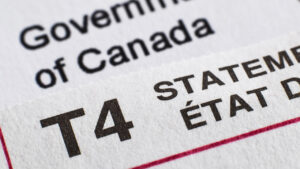As a small business owner, you face the ongoing challenge of managing costs and increasing profits while juggling the demands of running your business. While tax considerations often take a backseat to more immediate concerns, they play a crucial role in your overall success and can help you save money.
While you may already be familiar with common deductions such as office supplies and expenses, there are many more deductions that you might not be aware of. To ensure that you get all potential tax savings, I have compiled a comprehensive guide to help you identify and claim all eligible deductions.
Understanding Small Business Tax Deductions and Write-Offs
A tax write-off, also known as a tax deduction, is a business expense that can be subtracted from your taxable income. By deducting eligible expenses, you effectively reduce the amount of taxes you owe. To qualify for small business tax deductions, these expenses must meet the criteria established by the Canada Revenue Agency (CRA).
Qualifying Business Expenses for Tax Deductions and Write-Offs
Small business owners can generally deduct reasonable costs for maintaining and operating their company. These expenses must be necessary and justified to generate business income.
It’s important to note that valid receipts or invoices are required to support your expense claims. With proper documentation, your deductions may be allowed by the CRA in the event of a tax audit. Therefore, maintaining complete and up-to-date tax records is crucial.
11 Common Small Business Tax Deductions and Write-Offs
Small business owners can claim a wide range of expenses to offset their taxes. However, it’s essential to exercise proportionality and reasonableness when claiming these deductions. Here are the 11 most common operating costs associated with running a small business that are eligible for tax write-offs and deductions:
- Start-up Costs: Deductible expenses incurred before your business officially opens, including incorporation costs, legal and accounting fees, supplies, and machinery or equipment purchases.
- Marketing and Advertising: Expenses related to promoting your business, including traditional methods like radio, television, and newspaper advertisements, and digital marketing such as social media promotions. Registering domain names and web hosting costs are also tax-deductible.
- Business Licenses, Dues, and Memberships: Annual license fees, dues paid for professional or trade associations, and subscriptions to relevant publications are tax-deductible. However, club membership dues primarily focused on recreational, dining, or sporting activities are not eligible.
- Supplies: The costs of supplies used in your business operations, such as cleaning materials for a commercial cleaning company or tools for a landscaping business, can be tax-deductible.
- Office Expenses: Deductible costs for small office items like pencils, pens, paper clips, and stationery. However, more expensive items like filing cabinets, chairs, and desks are only partially deductible in the year of purchase but instead depreciated over time.
- Home Office Expenses: Certain expenses associated with using your home as a business space can be deducted, including heat, electricity, insurance, maintenance, rent, mortgage interest, and property taxes. However, these expenses must be proportionate to the space used for business purposes.
- Rent for Business: Expenses related to renting property for business purposes, such as your commercial establishment or workspace, can be deductible.
- Salaries, Wages, and Other Benefits: Deductible expenses include gross salaries, wages, the employer’s portion of Canada Pension Plan (CPP) contributions and Employment Insurance (EI) premiums, and premiums for employee disability, accident, sickness, or income insurance plans.
- Subcontractors: The costs of hiring freelancers or independent contractors for business-related tasks are tax-deductible.
- Meals and Entertainment: Generally, you can claim 50% of the total cost for food, drinks, and entertainment expenses. However, exceptions and special circumstances may affect the deduction limit.
- Business Travel: Expenses incurred during business-related travel, such as hotel accommodations, public transportation fares, and meals, can be deducted. However, there may be a 50% limit on food, beverage, and entertainment costs associated with travel.
These are just a few examples of the many deductions and write-offs available to small business owners. By familiarizing yourself with these potential savings opportunities and keeping detailed records, you can ensure you get all eligible deductions when filing your business tax return.
We, Muntaha CPA stands out as the top choice for accounting and tax services in Torotto. With our exceptional expertise and commitment to affordability, we offer the best service in the industry. You can trust us to handle all your financial needs with excellence and care.
Contact Us for a Free Consultation- https://muntahacpa.com/contact-us/




